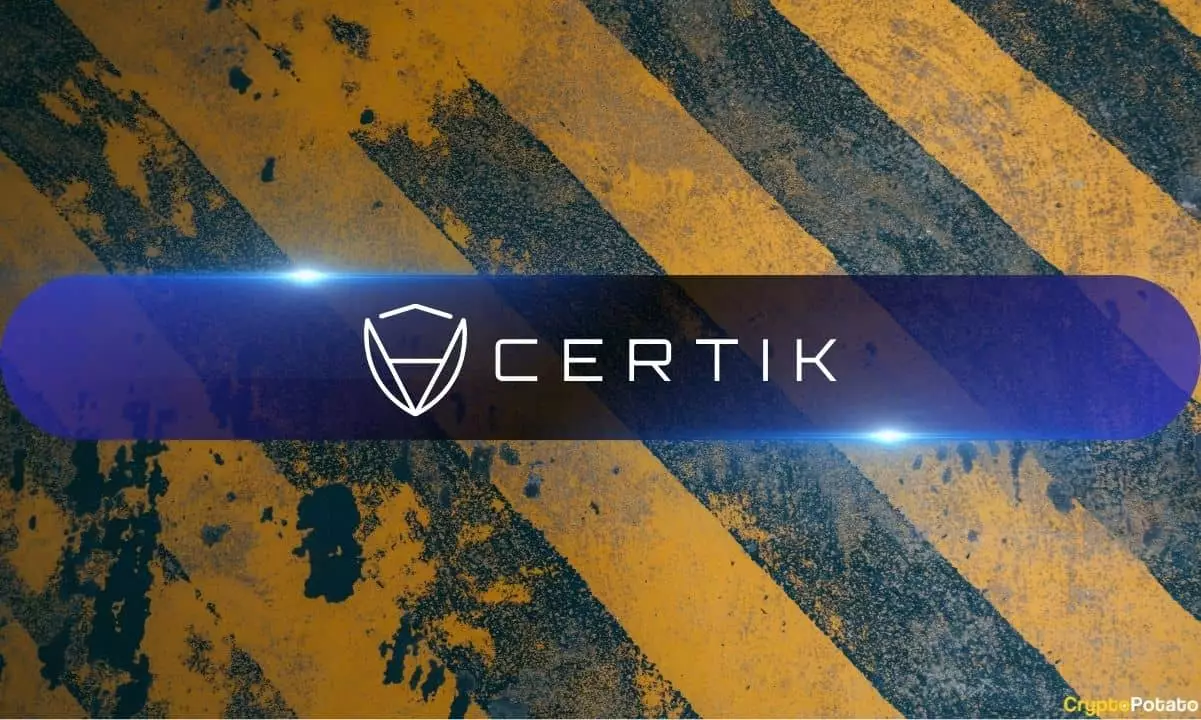In an industry increasingly plagued by scams and exploits, even security firm CertiK is not immune to the challenges presented by bad actors. CertiK, well-known for its expertise in providing comprehensive security solutions for blockchains, smart contracts, and Web3 technologies, has found itself targeted by scammers who exploit its brand to deceive and defraud users.
One prevalent scam involves the creation of phishing sites that falsely claim to have undergone CertiK audits. These fraudulent certifications are then used to trick users into investing in sham projects like Wixpool, a crypto-mining site that turned out to be a fraud. CertiK is actively working to combat these scams by reporting such sites to hosting providers, protecting users from potential financial losses.
Unfortunately, scammers have also resorted to falsely claiming to have been audited by CertiK in order to carry out exit scams. The Lymex scam serves as a notable example, resulting in a staggering $300,000 in losses. CertiK highlights the importance of verifying audit claims, stressing the need to exercise caution when dealing with projects that make dubious claims about CertiK’s endorsement. In the case of Lymex, the project failed KYC verification, leading to no services being rendered despite the claimed audit.
The rise of social media has provided scammers with a platform to create fake profiles, often impersonating CertiK employees. Platforms like LinkedIn have witnessed scammers brokering fraudulent deals, presenting fake investment opportunities, and even offering non-existent job positions. CertiK urges users to exercise vigilance and verify the legitimacy of interactions, highlighting a particular incident where a scammer on Telegram deceived a project owner into transferring funds.
Bad actors frequently target victims of investment fraud with recovery scams, promising to retrieve lost funds in exchange for an upfront fee. CertiK warns users to be cautious of such schemes, emphasizing that its genuine communication is exclusively conducted through its official website, certik.com. While the recovery service offered by CertiK is not guaranteed, it involves engaging with relevant parties to potentially recover lost assets.
Twitter has long been plagued by misinformation and bot activity, creating a challenging environment for genuine interactions. Although Elon Musk’s takeover and subsequent rebranding of CertiK to ‘X’ aimed to address this issue, scam bot activity continues to be a persistent problem. CertiK has also observed instances of brand misuse on the rebranded platform, ranging from harmless inquiries to outright scams.
CertiK, a leading security firm in the blockchain and Web3 industry, faces numerous challenges in combating scams and exploits. From phishing scams and fake audits to impersonations and recovery scams, CertiK continuously works to protect users and educate them about the importance of verification and vigilance. As the industry evolves, CertiK remains dedicated to ensuring the security of digital assets and decentralized technologies.















